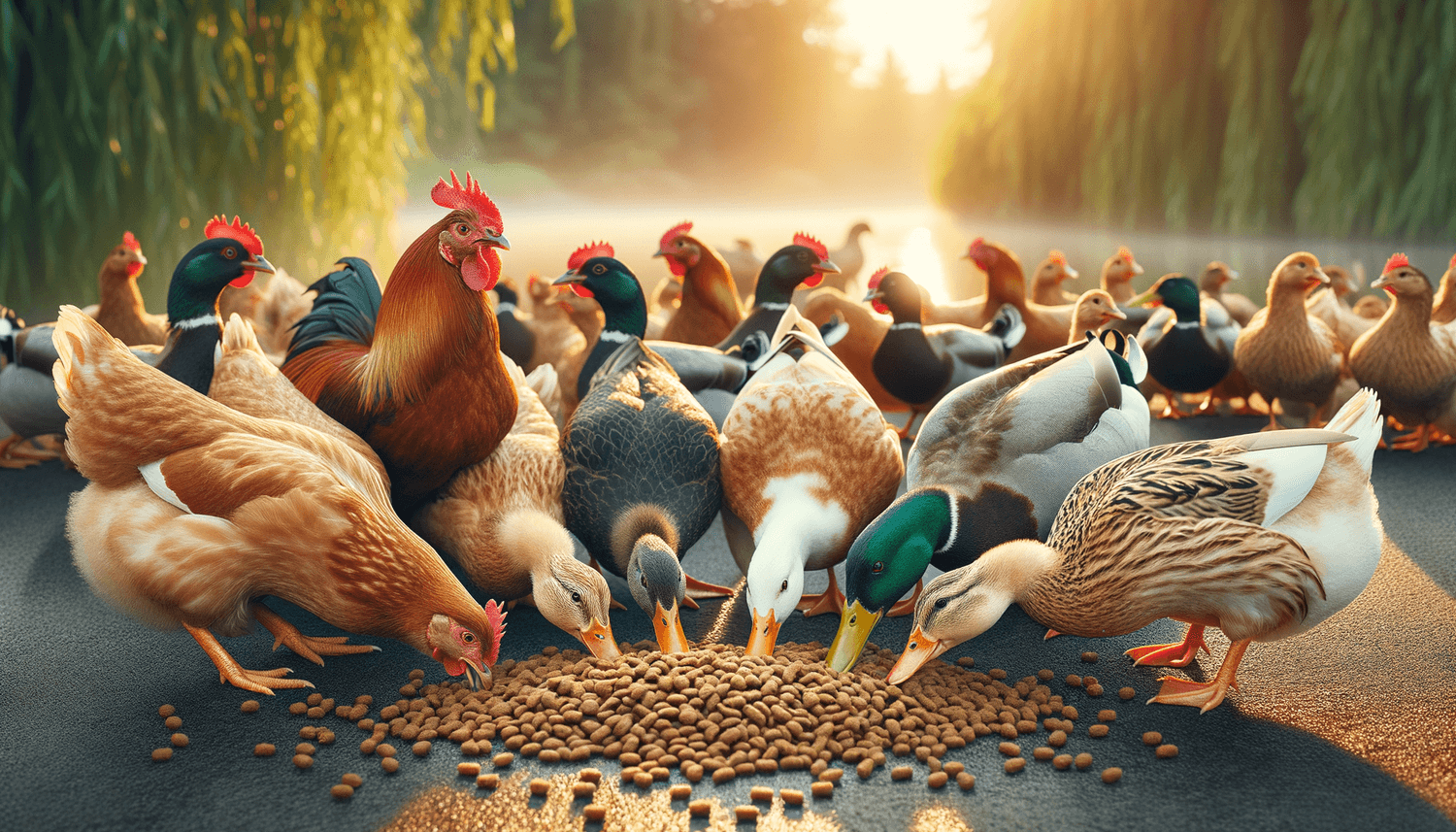Yes, chickens can eat duck food in moderation. However, duck feed is formulated specifically for waterfowl, which have different nutritional needs from chickens. Duck food often contains higher levels of niacin and lower levels of protein, which may not be optimal for chickens if fed exclusively.
Quick Summary
- Chickens can eat duck food.
- Duck food is formulated for ducks and contains different nutrient levels, which may not be entirely suitable as a sole diet for chickens.
- Possible benefits include an increase in niacin intake, while risks could involve imbalances if fed exclusively.
- Feed duck food to chickens in moderation and as part of a diverse diet.
Overview of Duck Food
Duck food is designed to meet the nutritional requirements of ducks, which are slightly different than those of chickens. Typically, it contains grains, plant proteins, vitamins, and minerals, with a particular emphasis on niacin content essential for ducks’ leg health. It’s also formulated to be more water-resistant, given ducks’ feeding habits.
Benefits and Risks of Duck Food for Chickens
While chickens can consume duck food as a part of their diet, the nutrient profile is not tailored for them. The higher niacin content can benefit chickens but may cause issues if the other nutrients they need are not in balance. Exclusively feeding duck food to chickens is not advised, as it could lead to nutritional deficiencies over time.
Feeding Guidelines
Duck food can be offered to chickens occasionally as a treat, but should not replace their regular, specially formulated chicken feed. If you do provide duck food, it should be done sparingly, making up no more than 10% of their overall diet to avoid nutritional imbalances.
Alternatives
If you’re looking for an alternative to duck food that is more suitable for chickens, consider poultry feed designed for layers or all-purpose feeds that cater specifically to the dietary needs of chickens. These will contain the right balance of nutrients, such as calcium for egg production and the correct protein levels for growth and health.
Expert Opinions
Poultry nutritionists and veterinarians often point out the importance of species-specific feeds. Nutritional balance is crucial for different types of poultry, and while there is room for some overlap, diets should be chosen to match each species’ particular needs for optimal health and productivity.
Frequently Asked Questions
After reading about whether chickens can eat duck food, you may have a few questions. Below are some common enquiries with straightforward answers.
Is niacin in duck food beneficial for chickens?
Niacin can be beneficial for chickens in the right amounts, as it supports their overall metabolism and nervous system health. However, too much niacin from exclusively feeding duck food is not recommended.
Can duck food replace chicken feed in my flock’s diet?
No, duck food should not replace chicken feed. It can be given as a treat but chickens need a diet formulated specifically for them to maintain health and egg production.
What happens if my chickens eat too much duck food?
Overfeeding duck food can lead to nutritional imbalances in chickens. This could affect their growth, feather condition, egg production, and overall health.

















